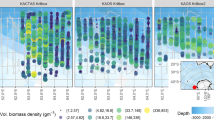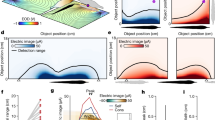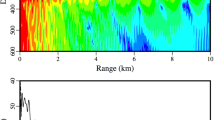Abstract
IN the issue of NATURE for Nov. 3 a short note by Prof. Carl Størmer appeared under this title. Prof. Størmer there described the observations made by him and Engineer Jørgen Hals, Oslo, of some remarkable echoes heard several seconds after the original signals—which were emitted from the short wave transmitter PCJJ (λ = 31·4 metre) Hilversum specially for the experiment—reached the receiver at Oslo. These special signals were first sent in March 1928. Since then the experiment has been repeated over and over again, sometimes twice and often four times a week. A continuous watch for these echoes was also kept at Eindhoven, Holland, in two different places, either by myself or an assistant, or by both of us. We did not hear any of these long period echoes for several months.
This is a preview of subscription content, access via your institution
Access options
Subscribe to this journal
Receive 51 print issues and online access
$199.00 per year
only $3.90 per issue
Buy this article
- Purchase on Springer Link
- Instant access to full article PDF
Prices may be subject to local taxes which are calculated during checkout
Similar content being viewed by others
Author information
Authors and Affiliations
Rights and permissions
About this article
Cite this article
VAN DER POL, B. Short Wave Echoes and the Aurora Borealis. Nature 122, 878–879 (1928). https://doi.org/10.1038/122878a0
Issue Date:
DOI: https://doi.org/10.1038/122878a0
Comments
By submitting a comment you agree to abide by our Terms and Community Guidelines. If you find something abusive or that does not comply with our terms or guidelines please flag it as inappropriate.



